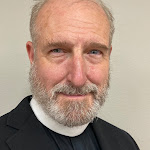Spirituality depends on the philosophical dualism that is
the suppositional basis of the New Testament.
It is on nearly every page of the Christian scriptures. Dualism can be roughly described by the two
general categories of good vs. evil. In
fact, that is the primary difference between Western intellectual traditions,
of which Christianity is the perfection, and Eastern monism, which says that it’s
all the same.
Good and evil branch off into other objects
that are opposed to one another. In time
I hope to identify them all and provide the references in a larger work. There are dozens of dualisms and hundreds of
verses. But for now I will show a few
and one passage that supports it. One
verse proves each duality true but might leave the impression that it is a passing
remark. Believe me, the number of dualistic
verses, along with historical evidence, means that Jesus, his
disciples, and the early Church were predominantly Hellenistic – that is, they used philosophical terms (like form
and substance) to convey the Good
News of God’s love in Christ to a non-Jewish audience.
According to New Testament dualism, then, the definition of
spirituality means to develop a personal habit and lifestyle of choosing between
good and evil. It does not mean to be
doe-eyed, ethereal, overly religious, one with the universe, or otherwise strange
in appearance, language, manner, or affect.
It means simply to gain clarity and choose well. Admittedly that is difficult to do sometimes
so we need each other, the word of God, and all the other the means of grace
that God provides in Christ.
Be that as it may, here is a partial list of New Testament dualities:
Good vs. evil: Romans 12:9: Abhor what is evil; hold fast to what is good. (Romans 12:9 ESV)
Spirit vs. flesh: For
the desires of the flesh are against the Spirit, and the desires of the Spirit
are against the flesh, for these are opposed to each other, to keep you from
doing the things you want to do. (Galatians 5:17 ESV)
Light vs. dark: The
light shines in the darkness, and the darkness has not overcome it. (John
1:5 ESV)
Mind vs. body: For I
delight in the law of God, in my inner being, but I see in my members another
law waging war against the law of my mind and making me captive to the law of
sin that dwells in my members. Wretched man that I am! Who will deliver me from
this body of death? (Romans 7:22-24 ESV)
Real/true form vs. shadow: For since the law has but a shadow of the good things to come instead
of the true form of these realities, it can never, by the same sacrifices that
are continually offered every year, make perfect those who draw near. (Hebrews
10:1 ESV)
Heaven vs. earth: If I
have told you earthly things and you do not believe, how can you believe if I
tell you heavenly things? (John 3:12 ESV)
God vs. the world: You
adulterous people! Do you not know that friendship with the world is enmity
with God? Therefore whoever wishes to be a friend of the world makes himself an
enemy of God. (James 4:4 ESV)
Righteousness vs. sin: Do
not present your members to sin as instruments for unrighteousness, but present
yourselves to God as those who have been brought from death to life, and your
members to God as instruments for righteousness. (Romans 6:13 ESV)
Freedom vs. slavery: So
Jesus said to the Jews who had believed him, “If you abide in my word, you are
truly my disciples, and you will know the truth, and the truth will set you
free.” They answered him, “We are offspring of Abraham and have never been
enslaved to anyone. How is it that you say, ‘You will become free’?” Jesus
answered them, “Truly, truly, I say to you, everyone who practices sin is a
slave to sin. (John 8:31-34 ESV)
New vs. old: But now
we are released from the law, having died to that which held us captive, so
that we serve in the new way of the Spirit and not in the old way of the
written code. (Romans 7:6 ESV)
Christ vs. the lawless one: And then the lawless one will be revealed, whom the Lord Jesus will
kill with the breath of his mouth and bring to nothing by the appearance of his
coming. (2 Thessalonians 2:8 ESV)
Life vs. death: But
God, being rich in mercy, because of the great love with which he loved us,
even when we were dead in our trespasses, made us alive together with Christ—by
grace you have been saved—and raised us up with him and seated us with him in
the heavenly places in Christ Jesus, so that in the coming ages he might show
the immeasurable riches of his grace in kindness toward us in Christ Jesus.
(Ephesians 2:4-7 ESV)
